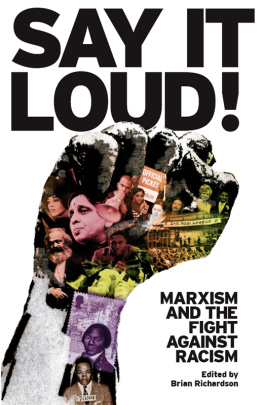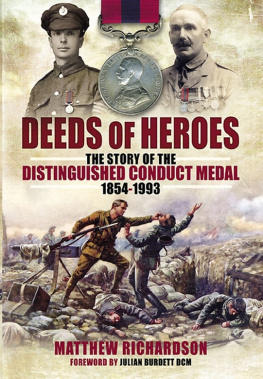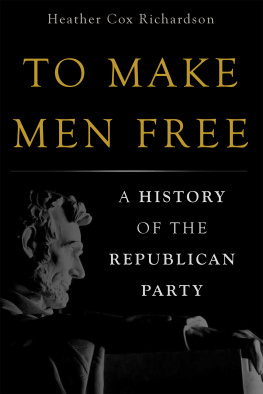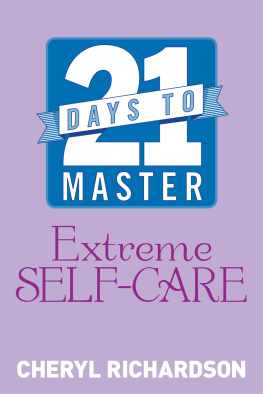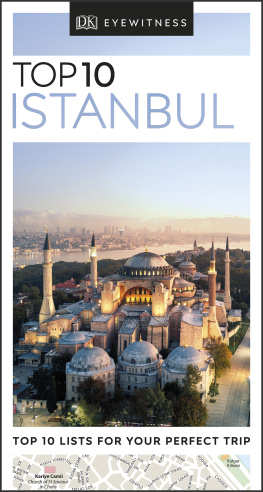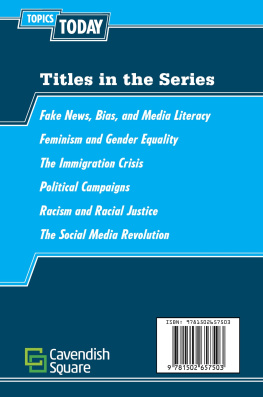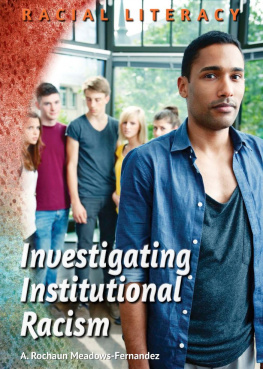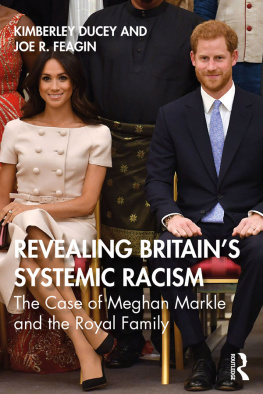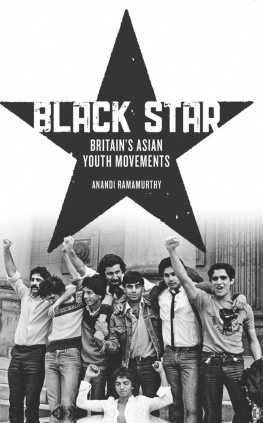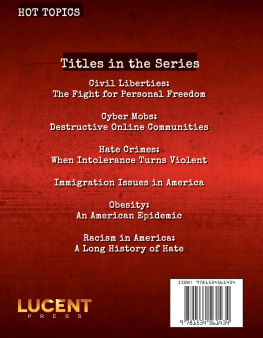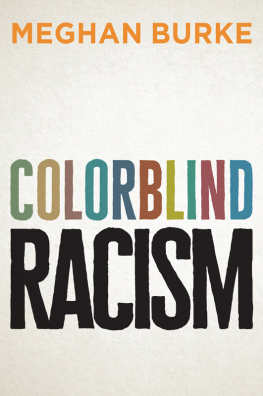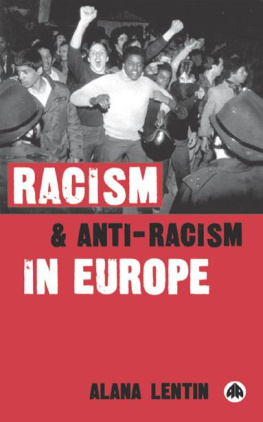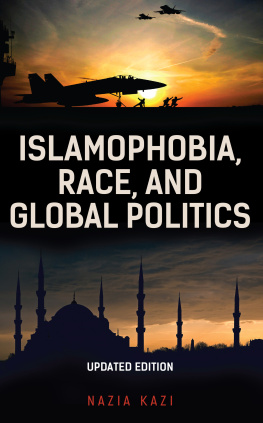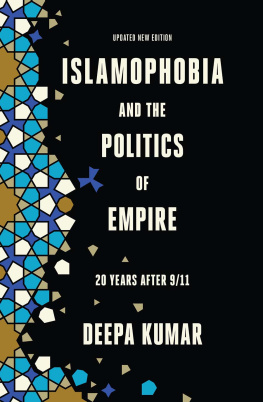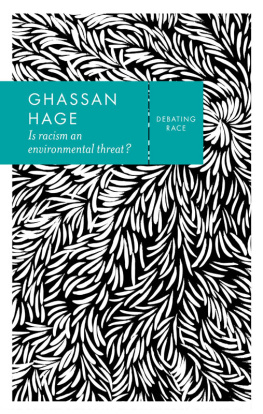Say it Loud: Marxism and the Fight Against Racism
Edited by Brian Richardson
Dedicated to Julie Waterson
SAY IT LOUD
Marxism and the
Fight Against Racism
Edited by Brian Richardson

Say it Loud: Marxism and the Fight Against Racism
Edited by Brian Richardson
Published by Bookmarks Publications July 2013
Bookmarks Publications
1 Bloomsbury Street, London WC1B 3QE
ISBN 978 1 909026 38 4
ePub ISBN 978 1 909026 45 2
Kindle ISBN 978 1 909026 46 9
Cover design Yuri Prassad
Typeset by Bookmarks Publications
Printed by Halstan Printing Group
Contents
Introduction: Say it loud
Brian Richardson
Acknowledgements
IN THE true spirit of socialism, this book is the result of many minds and a collective effort. I must begin by thanking Ken, Gary, Hassan, Talat, Weyman, Yuri and Esme for the thought and commitment that they have put into their individual chapters. Meanwhile Sally Campbell our editor at Bookmarks is the unsung hero who spent many months patiently prodding, encouraging and cajoling us and finally pulled everything together. Paul Holborow, Charlie Kimber and Alex Callinicos read various drafts and provided measured and valuable feedback. Thanks also to Claire Dissington and Dave Sellers for their encouragement and support. My ex-flatmate Miriam Ruth is not only an amazing friend; she has also been a great source of strength and someone who has willingly given of her time to read various chapters, accompany me to numerous meetings and seminars and discuss and debate ideas. Particular thanks again to Yuri Prasad for his cover designand for coming up with the title!
It saddens me to think that many of the people who read this book will never get to meet Julie Waterson, our comrade and friend who died in November 2012 at the age of just 54. For me it was a privilege to work with her for five years during her time as the national organiser of the Anti Nazi League. She was truly inspirational, one of the most principled and dedicated people I have ever met and without doubt the most fearless. On behalf of all of the contributors, this book is dedicated to her. Our modest hope is that it can play some role in enlightening a new generation, reinvigorating others and encouraging the struggle that Julie spent her life building.
A note on terminology
IN MOST of the chapters in this book we use the term black to mean those people of African, Asian, Caribbean, and South East Asian and mixed race descent and other groups who are oppressed and discriminated against on the grounds of their race, culture, colour, nationality or religious practice. A number of points need to be made about this choice of terminology.
The first thing to say is that we recognise that this definition may be problematic for some individuals and groups. It has been suggested for example that the term black evokes the specific historic experience of people of African descent and thereby understates that of Asians. Clearly as well, it appears to exclude the experience of Irish people and those from Roma, Gypsy and Traveller communities who, we argue, unquestionably suffer from racism. Indeed, one of the most naked examples of racism in Britain in recent years was witnessed with the eviction of the Traveller community from land they owned at the Dale Farm site in Essex, south east England.
Our aim is not to marginalise and exclude but, rather, to encourage unity. Identity is a very sensitive and, by definition, personal matter. We share our readers concerns about the use, or misuse of terminology. As Ken Olendes opening chapter makes clear, the idea of races is itself scientifically unsound. Yet race clearly exists as a social construct and its impact upon us is deep and profound. We therefore respect the right of every individual to identify themselves as they see fit and according to the terminology with which they feel most comfortable.
One simple reason for the use of the term black is for ease of reference. In recent years a myriad of different terms have been used. As an alternative to black there has been a preference for, among others, black and ethnic minority, black and minority ethnic, minority ethnic, BME, black, Asian and minority ethnic and BAME. There have also been fevered debates about whether black should have a capital B and if so, whether white should also be capitalised. And of course, who falls under the rubric of white?
Given the frequency with which a book of this nature refers to identity it is, quite simply, easier to read the one-word term black than any of the other choices. There are occasions, however, where we cite particular statistics or pieces of research which are broken down into specific ethnic groups.
The final point to be made is a political one. Historically, blackness was adopted and recognised as a collective term which encouraged solidarity among different ethnic groups by focusing upon the common experience of racism rather than dwelling upon the areas of difference. Indeed, in the late 1960s and early 1970s, one of the highest periods of struggle, the term black was celebrated as the collective term which united people and also drew solidarity from womens rights and gay and lesbian campaigners. As Gary McFarlane demonstrates in these pages, very few people have benefited from the increased obsession with distinct and separate identities which developed in the 1970s and 1980s. Nevertheless, we acknowledge that in recent decades there has been a shift away from the use of the term black and that many people who are oppressed by racism would not recognise or define themselves as such. It is for this reason that we use the term black and Asian at times in the final chapter.
The aim of this book is to encourage a revival of struggle. We believe that what unites is more important than what divides and therefore we prefer to use a term that reflects the very best history and tradition of solidarity.
Introduction: Say it loud
Brian Richardson
THE WORLD we live in is one of enormous wealth and technological development. Our ability to create, produce, communicate, travel and transport seems limitless and the capacity exists to provide everybody on the planet with food, shelter and a decent standard of living. Yet despite that, it is a world of deep divisions and racism, a belief that some people by their very nature are not simply different but also less deserving of equality, inclusion and a share in societys resources.
Far from eradicating these divisions, the dawning of a new decade has been accompanied by a revival of trends we had not witnessed since the horrors of the 1930s and 1940s when Hitler and Mussolini held power in Germany and Italy respectively. Across Europe far-right and openly fascist groups such as Golden Dawn in Greece and Jobbik in Hungary have risen from nowhere to claim a place at the heart of politics while the Front National in France maintained a position that it had built up steadily over 30 years.
Mainstream politicians and media commentators frequently assert that Britain is different; that we are somehow more tolerant, broadminded and committed to a sense of fair play which makes these islands immune to such extremism. Such assertions are both dangerous and complacent.
In the spring of 2013 Britain experienced a sharp and significant increase both in racist scapegoating and in fascist activity. The most dangerous and dramatic development was a revival in the fortunes of the seemingly moribund English Defence League (EDL). These racist thugs set out to exploit and avenge the horrific murder of a soldier in Woolwich, south east London, by taking to the streets and fomenting violence against Muslims. Within weeks there was a significant increase in attacks upon individual Muslims and arson attacks upon an Islamic community centre in north London and a school in Chislehurst.
Next page
